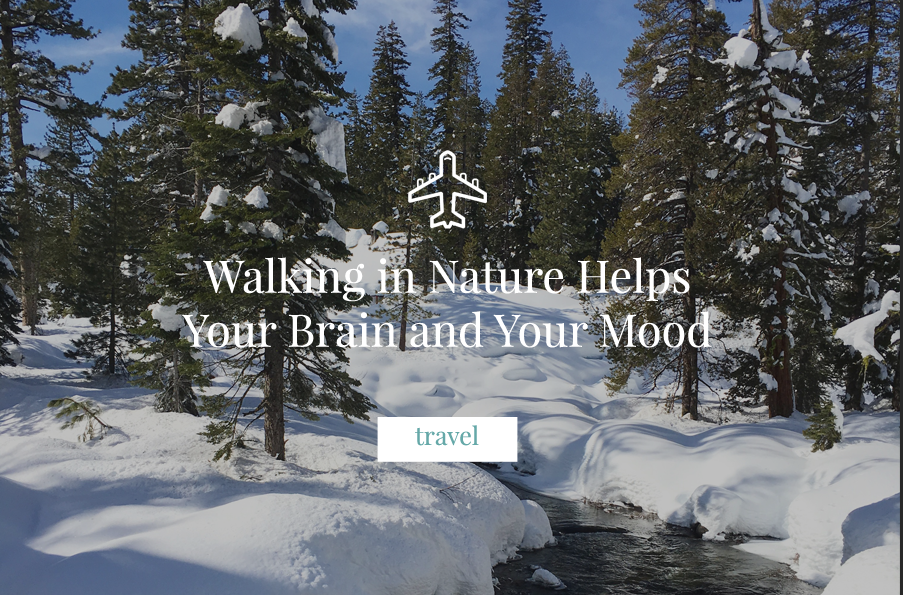“Keep close to Nature’s heart…and break clear away, once in a while, and climb a mountain or spend a week in the woods. Wash your spirit clean.”
John Muir, naturalist and conservationist
Muir extolled the virtues of walking in untamed environments and the effect on the mind and body in so much of his writing. In the decades since, psychologists have proved him right. Exposure to nature has been shown repeatedly to reduce stress and boost well-being.
Even though Punxsutawney Phil saw his shadow on Thursday, February 2, 2017, which as aficionados of the annual ritual know, means we’re in for six more weeks of cold weather, here are a number of suggestions for enjoying nature in winter: watch the sunset wrapped up in a blanket, enjoy a roaring outdoor fire, go out at night and see the stars, ski/snowboard, go snowshoeing or cross country skiing, go on a guided nature hike in winter, enjoy a windshield tour of a National or State park (you don’t have to hike), do a power-walk in your neighborhood, go ice fishing, snowmobiling, or my personal favorite; photographing winter scenes.
For me, there’s something magical about being inside a forest during the winter. Whenever I get to witness the sun peek through the pine branches of a rocky, snow-covered landscape, my heart soars – it literally skips a beat. There’s a peaceful calm, along with the winter silence that allows me to be still, taking in everything around me. I am quickly reminded just how small I am compared to the immensity of the universe, and that new perspective enables me to have a different perception of myself and my life.
Feeling distant from that perspective last week, along with the pressures of a website launch and manuscript deadline, I headed to Lake Tahoe on a solo-trek with my dog, Whiskey Bravo. Spending only a brief amount of time planning my day-trip, I grabbed some snacks and plenty of water, gear for me and the dog, and got on the road. Within 60 minutes, we were already inside the Tahoe National Forest. The area recently had a record number amount of snowfall, so I made sure to be careful on the roads and trails. As my partner Rob likes to remind me all the time, “it’s all about the gear.” There’s no such thing as bad weather, just inappropriate clothing. If you plan and pack smart, anyone can enjoy a day with Mother Nature. Choose your adventure, and have fun!
Here are just a few potential benefits:
1. Restored mental energy
You know that feeling where your brain seems to be sputtering to a halt? Researchers call that “mental fatigue.” One thing that can help get your mind back into gear is exposing it to restorative environments, which, research has found, generally means the great outdoors. One study found that people’s mental energy bounced back even when they just looked at pictures of nature. Studies have also found that natural beauty can elicit feelings of awe, which is one of the surest ways to experience a mental boost.
Source: Journal of Environmental Psychology, 1995; Journal of Environmental Psychology, 2005; Psychological Science, 2012
2. Improved short-term memory
In one study, University of Michigan students were given a brief memory test, then divided into two groups.
One group took a walk around an arboretum, and the other half took a walk down a city street. When the participants returned and did the test again, those who had walked among trees did almost 20% percent better than the first time. The ones who had taken in city sights instead did not consistently improve.
Source: Psychological Science, 2008; Journal of Affective Disorders, 2013
3. Stress relief
Tensed and stressed? Head for the trees. One study found that students sent into the forest for two nights had lower levels of cortisol — a hormone often used as a marker for stress — than those who spent that time in the city.
In another study, researchers found a decrease in both heart rate and levels of cortisol in subjects in the forest when compared to those in the city. “Stressful states can be relieved by forest therapy,” they concluded.
Among office workers, even the view of nature out a window is associated with lower stress and higher job satisfaction.
Source: Scandinavian Journal of Forest Research, 2007; Environmental Health and Preventative Medicine, 2010; Japanese Journal of Hygiene, 2011; Biomedical and Environmental Sciences, 2012
4. Improved concentration
We know the natural environment is “restorative,” and one thing that a walk outside can restore is your fading attention. In one early study, researchers worked to deplete participants’ ability to focus. Then some took a walk in nature, some took a walk through the city, and the rest just relaxed. When they returned, the nature group scored the best on a proofreading task.
Source: Environment & Behavior, 1991; Journal of Environmental Psychology, 1995
5. Immune system boost
The cellular activity that is associated with a forest’s possible anti-cancer effects is also indicative of a general boost to the immune system you rely on to fight off less serious ills, like colds, flus, and other infections.
A 2010 review of research related to this effect noted that “all of these findings strongly suggest that forest environments have beneficial effects on human immune function”.
Source: Environmental Health and Preventative Medicine, 2010
6. Improved mental health
Anxiety, depression, and other mental health issues may all be eased by some time in the great outdoors — especially when that’s combined with exercise. This is to be expected, as both greenery and exercise are known to reduce stress.
One study found that walks in the forest were specifically associated with decreased levels of anxiety and bad moods, and another found that outdoor walks could be “useful clinically as a supplement to existing treatments” for major depressive disorder.
Source: Stanford Woods Institute for the Environment
Don’t let baby boomers be the last generation to remember a time when it was considered normal and expected for children to play in woods and fields. When we leave this earth, will the memory of such experiences leave with us? I sincerely hope not!
Reconnecting to the natural world (as we reconnect ourselves) could be our greatest, most redemptive cause. So, go. Get outside!






